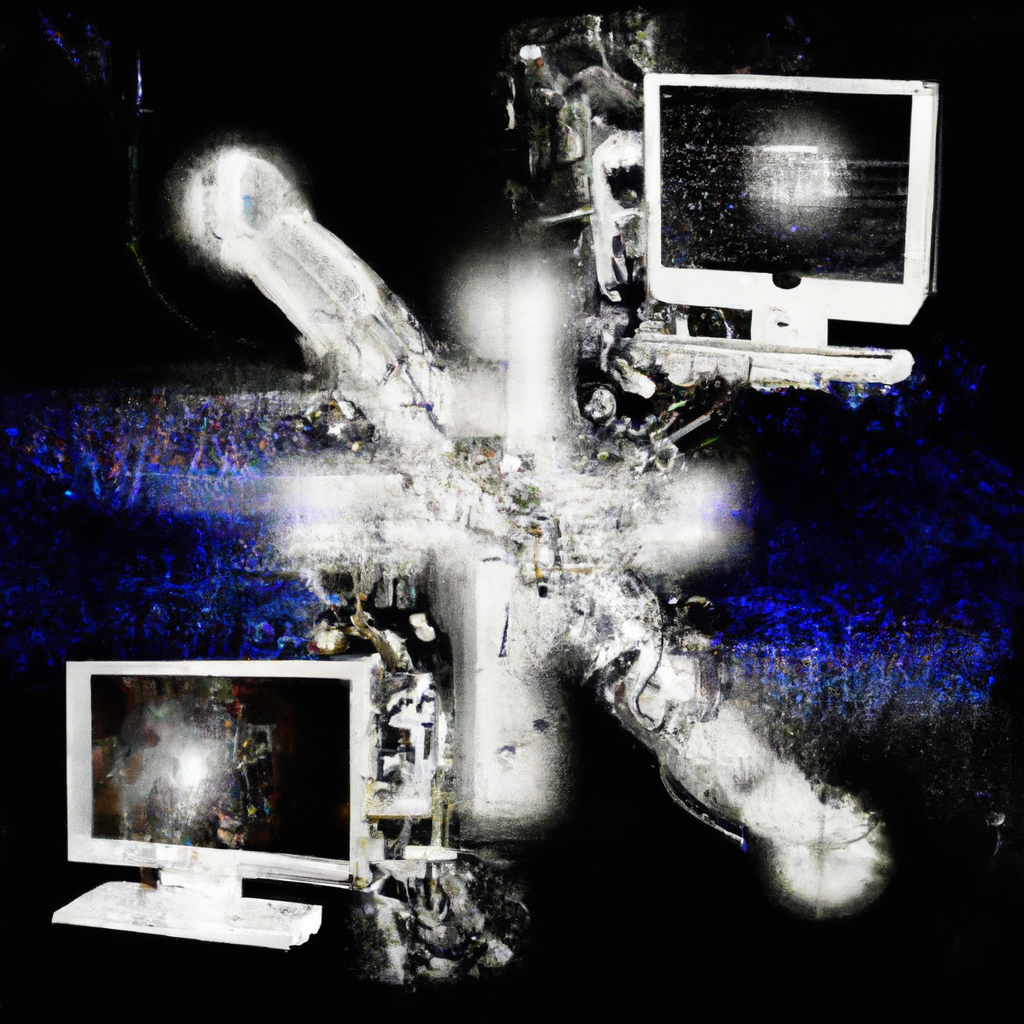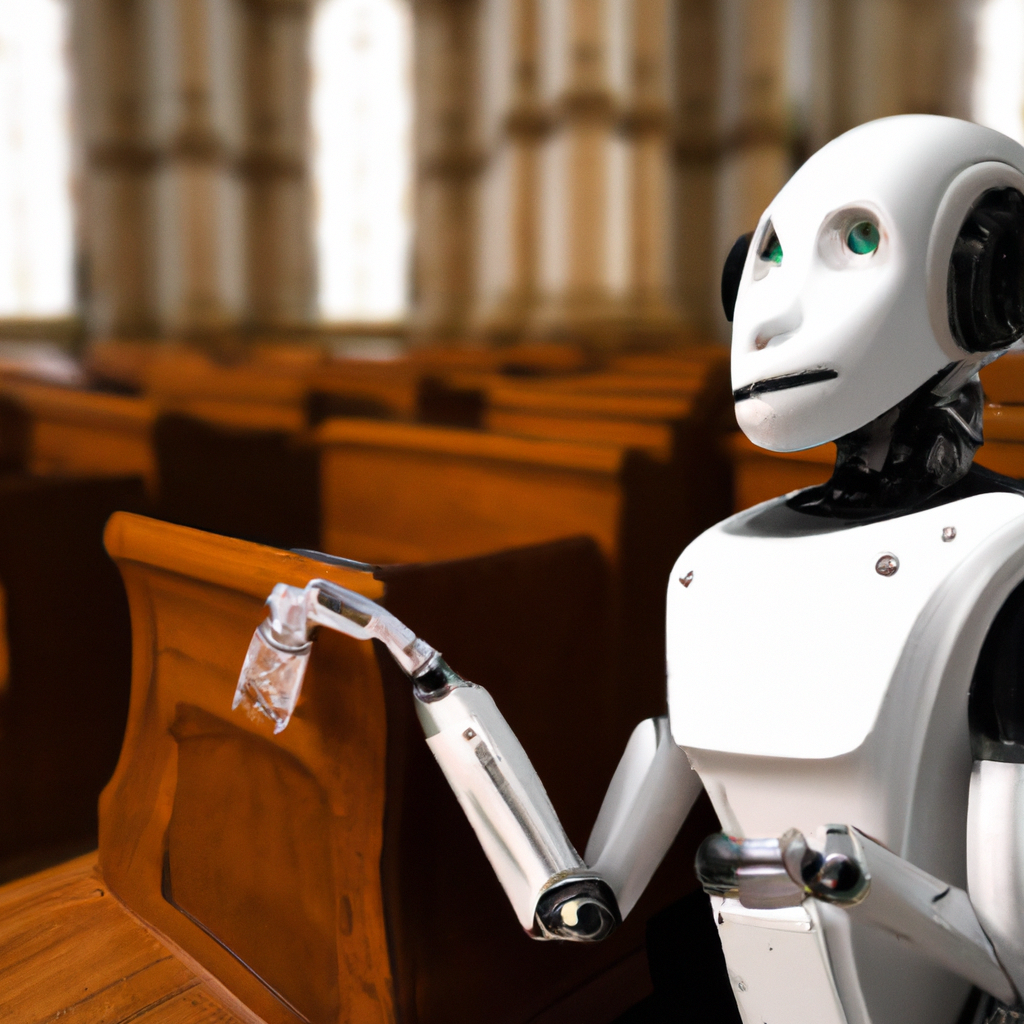In a rapidly advancing technological landscape, the intersection of faith and technology has become increasingly prominent. As artificial intelligence continues to permeate various aspects of society, including religious communities, Christians are facing new opportunities and challenges in navigating the role of AI in their faith. In this article, we will explore how Christianity is embracing AI, the ethical dilemmas that arise, the impact of AI on the practice of Christianity, how technology is bringing Christians closer together, and the potential benefits and challenges of integrating AI into the church. Join us as we delve into this evolving relationship between technology and Christianity in the age of AI.
1. "The Intersection of Faith and Technology: How Christianity is Embracing AI"
In recent years, there has been a growing intersection between faith and technology, particularly within Christianity. As advancements in artificial intelligence (AI) continue to revolutionize various aspects of society, the church is also beginning to explore how AI can be integrated into its practices and teachings.
One way in which Christianity is embracing AI is through the use of chatbots and virtual assistants to provide spiritual guidance and support to believers. These AI-powered tools are often equipped with knowledge of Christian scriptures and teachings, allowing them to offer personalized advice and encouragement to individuals seeking guidance in their faith.
Additionally, some churches have begun using AI technology to enhance their outreach and community engagement efforts. For example, AI algorithms can analyze data from church databases to identify individuals who may be in need of assistance or support, enabling church leaders to reach out to those in need more effectively.
While there are undoubtedly ethical and theological considerations to take into account when integrating AI into Christian practices, many within the faith community see the potential for AI to enhance and enrich their spiritual experiences. By embracing AI technology, Christianity is demonstrating its ability to adapt and evolve in response to the changing technological landscape, while still remaining true to its core beliefs and principles.
2. "Ethical Dilemmas: Navigating the Moral Implications of AI in Christian Communities"
As artificial intelligence continues to advance, Christian communities are faced with a plethora of ethical dilemmas that must be carefully navigated. One of the primary concerns is the potential loss of human agency and autonomy as AI systems become more sophisticated. Some Christian scholars argue that humans are created in the image of God and possess moral responsibility and dignity that should not be outsourced to machines.
Another ethical dilemma is the question of how AI should be used in decision-making processes within Christian communities. For example, should AI be used to make ethical judgments or interpret religious texts? Some Christians argue that these tasks should remain the responsibility of humans, as they require a level of discernment and spiritual wisdom that AI lacks.
Additionally, there are concerns about the potential for bias and discrimination in AI systems, which could perpetuate existing inequalities and injustices within Christian communities. For example, if AI is used in the hiring process for a Christian organization, there is a risk that it could inadvertently discriminate against certain groups of people based on factors such as race or gender.
Overall, Christian communities must grapple with the moral implications of AI and carefully consider how to integrate this technology in ways that are aligned with their faith values and ethical principles. It is essential for Christians to approach the use of AI with a critical eye and a commitment to upholding the dignity and worth of all human beings, regardless of the technological tools at their disposal.
3. "Looking to the Future: How AI is Impacting the Practice of Christianity"
As we look to the future, it is clear that AI is already beginning to impact the practice of Christianity in various ways. One of the key areas where AI is making a difference is in the realm of communication and outreach. AI-powered chatbots and virtual assistants are being used by churches and Christian organizations to provide information, support, and guidance to individuals seeking spiritual help. These tools are able to engage with people in real-time, offering personalized responses and connecting them to resources that can meet their specific needs.
Additionally, AI is also being used to enhance the educational experience within Christian communities. Virtual reality and augmented reality technologies are being employed to create immersive learning environments, allowing individuals to virtually explore historical sites, biblical events, and theological concepts. This not only enhances understanding and engagement but also helps to reach and teach a broader audience.
Furthermore, AI has the potential to revolutionize the way Christian communities engage in outreach and evangelism. By analyzing data and trends, AI can help identify opportunities for outreach and tailor messaging to specific audiences. This targeted approach can lead to more effective and efficient outreach efforts, ultimately reaching more people with the message of Christianity.
Overall, AI is poised to have a significant impact on the practice of Christianity in the future. While there are certainly challenges and concerns to consider, the potential benefits of leveraging AI technology for the advancement of the Christian faith are vast. As Christian communities navigate this new technological landscape, they must approach the integration of AI with a thoughtful and prayerful mindset, always seeking to use technology in ways that align with their core values and beliefs.
4. "Bridging the Gap: How Technology is Bringing Christians Closer Together"
Technology has played a significant role in connecting Christians globally and helping them stay connected with their faith communities. With the rise of social media, online forums, and virtual church services, Christians are now able to engage with other believers and share their faith in ways that were not possible before. Technology has also provided new platforms for Christians to participate in Bible studies, prayer groups, and other faith-based activities, regardless of their physical location.
One of the most notable ways technology has brought Christians together is through the development of mobile apps and online platforms specifically designed for Christian communities. These platforms allow believers to easily access resources, connect with others for prayer and support, and even participate in virtual worship services. This technological advancement has made it easier for Christians to stay connected with their faith and find like-minded individuals to journey with them in their spiritual walk.
Overall, technology has become a powerful tool in bridging the gap between Christians and helping them build stronger relationships with each other. As the world continues to advance in the age of AI, technology will undoubtedly play an even larger role in fostering Christian community and unity.
5. "AI and the Church: Exploring the Potential Benefits and Challenges"
When it comes to the intersection of AI and Christianity, there are potential benefits and challenges that the Church may face. On one hand, AI can be a powerful tool for enhancing communication, outreach, and efficiency within the Church. AI-powered chatbots can provide instant responses to common questions, freeing up time for pastors and church staff to focus on more meaningful interactions with their congregation. Additionally, AI algorithms can analyze data to help churches better understand the needs and preferences of their members, leading to more personalized and effective ministry efforts.
However, there are also potential challenges that come with integrating AI into the Church. One concern is the potential dehumanization of relationships within the Church. While AI can streamline processes and improve communication, it can never replace the emotional connection and empathy that is central to Christian ministry. There may also be ethical considerations around the use of AI in decision-making and leadership within the Church, as well as concerns about data privacy and security.
Ultimately, the Church must approach the integration of AI with caution and discernment, striving to balance the benefits of technology with the values and principles of Christianity. By carefully considering the potential benefits and challenges of AI in the context of the Church, Christian leaders can harness the power of technology while upholding the core tenets of their faith.




